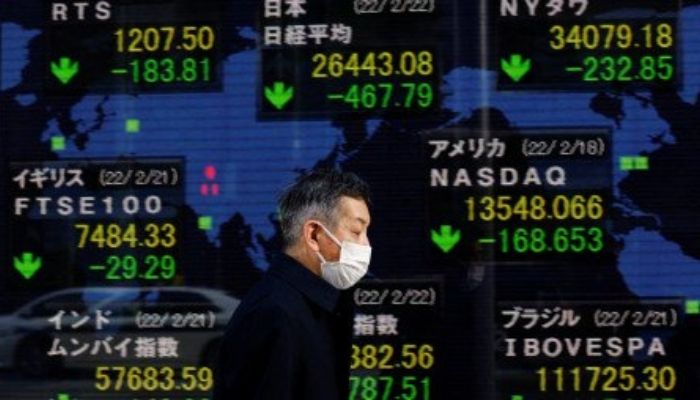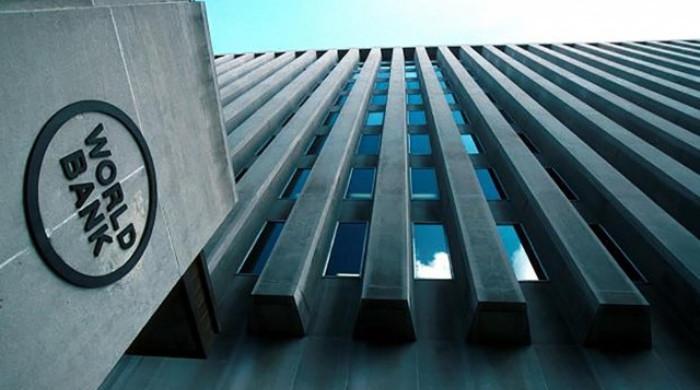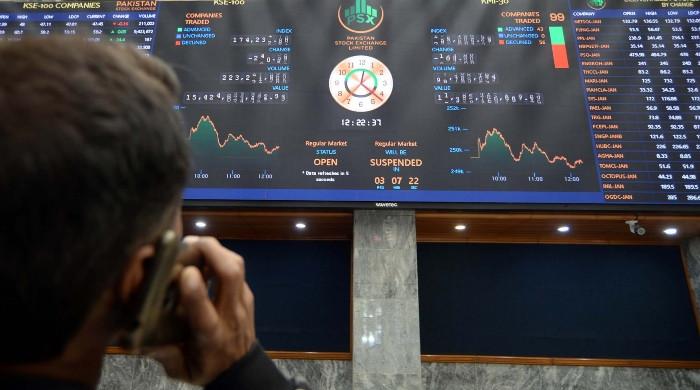Asian stocks lose bounce from shorter China quarantine, slip on inflation fears
Asian shares had ended previous session on positive trajectory
June 29, 2022

TOKYO: Stocks fell across Asia on Wednesday morning, extending overnight losses on Wall Street amid concerns over the recession, inflation, and high oil prices, which also boosted the safe-haven dollar.
Japan's Nikkei index fell 1.01% in early trading, while MSCI's broadest index of Asia-Pacific shares outside Japan fell 1.01%. MIAPJ0000PUS fell 1.1%, dragged lower by Australian shares. AXJO, off 1.29%, and Korea's KOSPI, KS11, down 1.57%.
Asian shares had ended the previous session on a positive trajectory after China announced an easing of its quarantine requirements for inbound passengers, in what some observers saw as the biggest relaxation so far of its "zero COVID" strategy.
But the impact was petering out on Wednesday.
"Inevitably, markets tend to overreact to this sort of news," said Carlos Casanova, senior economist at UBP in Hong Kong. "In order for that to be sustainable, we really want to see these measures materialise into actual reopening."
Chinese blue chips CSI300 which hit a four-week high the day before, lost 0.6% while the Hong Kong benchmark. HSI fell 1.3%.
The losses in Asia followed a turbulent day in US markets, with the S&P 500 index down more than 2% after data showed US consumer confidence dropped to a 16-month low in June due to fears that high inflation could cause the economy to slow significantly in the second half of the year.
When investors worried again about the possibility of a global recession, they turned to the dollar as a safe haven. The dollar index stayed steady at 104.4.
The euro EUR= dropped 0.6% on the greenback overnight and was little changed in early Asia at $1.0529. The Japanese yen (JPY=) stood at 136.03 per dollar, not far from last week's 24 year low of 136.7.
The yen has struggled as the Bank of Japan keeps monetary policy loose even as other major banks tighten, a point reiterated by BOJ governor Haruhiko Kuroda on Wednesday.
The yield on 10-year USTreasury notes (US10YT=RR) was flat at 3.1697%.
Oil prices fell back slightly after three sessions of gains, but global supply tightness underpinned the market. A report from last night said that Saudi Arabia and the United Arab Emirates won't be able to increase production by much in the near future.
Brent crude futures (LCOc1) fell 0.53% on the day to $117.35 a barrel. US crude CLc1 fell 0.37% to $111.39.
"I think that immediate prices will likely remain elevated," said UBP's Casanova. "But I don't think that we will see a significant spillover into other Asian asset classes, excluding potential bonds for some countries that are very sensitive to changes in energy prices."
Spot gold XAU= rose slightly, gaining 0.15% to trade at $1,822.48 an ounce.











